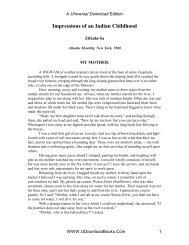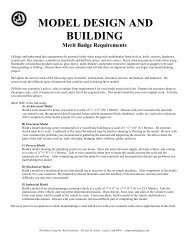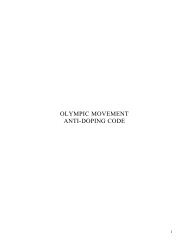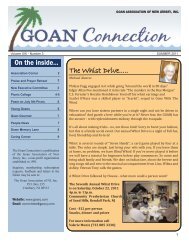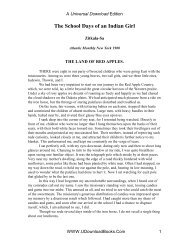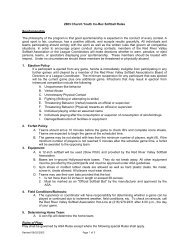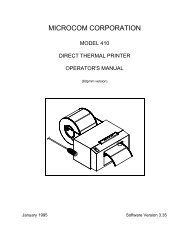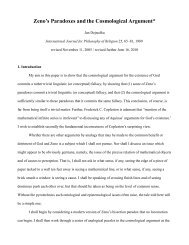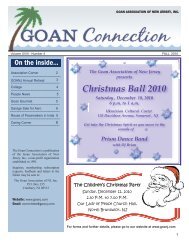Dummett's Backward Road to Frege and to Intuitionism - Tripod
Dummett's Backward Road to Frege and to Intuitionism - Tripod
Dummett's Backward Road to Frege and to Intuitionism - Tripod
Create successful ePaper yourself
Turn your PDF publications into a flip-book with our unique Google optimized e-Paper software.
<strong>Frege</strong> holds that not every sense can be defined. That is precisely why <strong>Frege</strong> says that primitive names<br />
—including both the senses they express <strong>and</strong> the references they refer <strong>to</strong>—need explication. And<br />
second, since references are given “only via senses” (1979c: 124), the application of this definition in<br />
particular cases would always presuppose our grasping some sense, since the reference of “A” can only<br />
be given <strong>to</strong> us via some sense in the first place. And that is circular.<br />
On the face of it, Grundgesetze vol. 1, § 32 describes what senses essentially are in terms of<br />
how they function in relationship <strong>to</strong> references, but without trying <strong>to</strong> define sense in terms of reference,<br />
<strong>and</strong> without suggesting that senses can be derived from references. I think the circularity of the<br />
attempted definition of sense is the underlying reason why. Thus, <strong>to</strong> apply <strong>Frege</strong>’s threefold distinction<br />
among definition (Definition), explanation (Erklärung), <strong>and</strong> explication (Erläuterung) (see my 2003:<br />
73), § 32 may only be unders<strong>to</strong>od as stating <strong>Frege</strong>’s explanation (not: definition) of what senses are.<br />
(An explanation states what a thing is, but without technically being a definition; <strong>Frege</strong>’s only explicit<br />
explanation is of identity as indiscernibility.) And saying that senses are the ways references are given<br />
is the explanation underlying the explanation.<br />
Thus the difference between what Dummett seems <strong>to</strong> think § 32 says <strong>and</strong> what § 32 actually<br />
says is as little—<strong>and</strong> as great—as the difference between definition <strong>and</strong> explanation.<br />
In The Interpretation of <strong>Frege</strong>’s Philosophy, Dummett revisits his <strong>Frege</strong>: Philosophy of<br />
Language rejection of the “no backward road” argument. He admits there is “no backward road” in<br />
“<strong>Frege</strong>’s unamended theory” (1981a: 95). He does not “attempt <strong>to</strong> examine the details of Russell’s<br />
argument” (1981a: 131; see my 2003: 275–77 for the details). He is very clear on the conclusion of the<br />
argument: whenever we try <strong>to</strong> refer <strong>to</strong> a sense, we succeed only in referring <strong>to</strong> a reference (1981a: 131).<br />
But this is a red herring. The explicit “no backward road” thesis is not a premise of the argument or its<br />
conclusion, but a closure clause at the end of the argument. Yet if Dummett rejects it, he is committed<br />
<strong>to</strong> rejecting the argument as futile, since we can then backwardly single out senses after all.<br />
30




